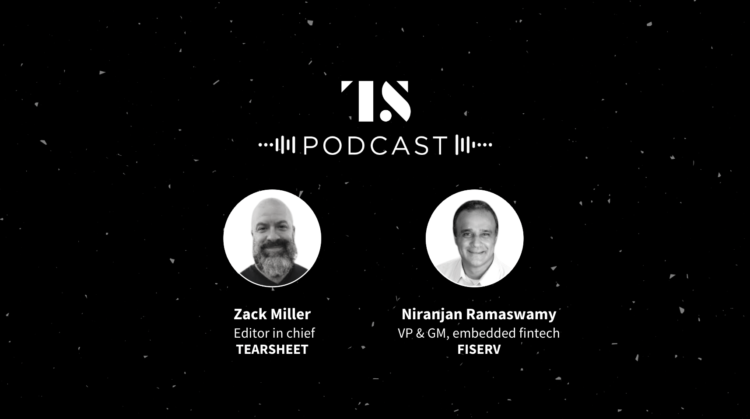Data, Partner, Podcasts
‘Developers have become as central a figure as the banks’: Fiserv’s Niranjan Ramaswamy
- VP and GM of embedded fintech at Fiserv, Niranjan Ramaswamy, joins us on the Tearsheet Podcast.
- Listen to our conversation about how Fiserv empowers developers to build products that bring fintechs and FIs together.








